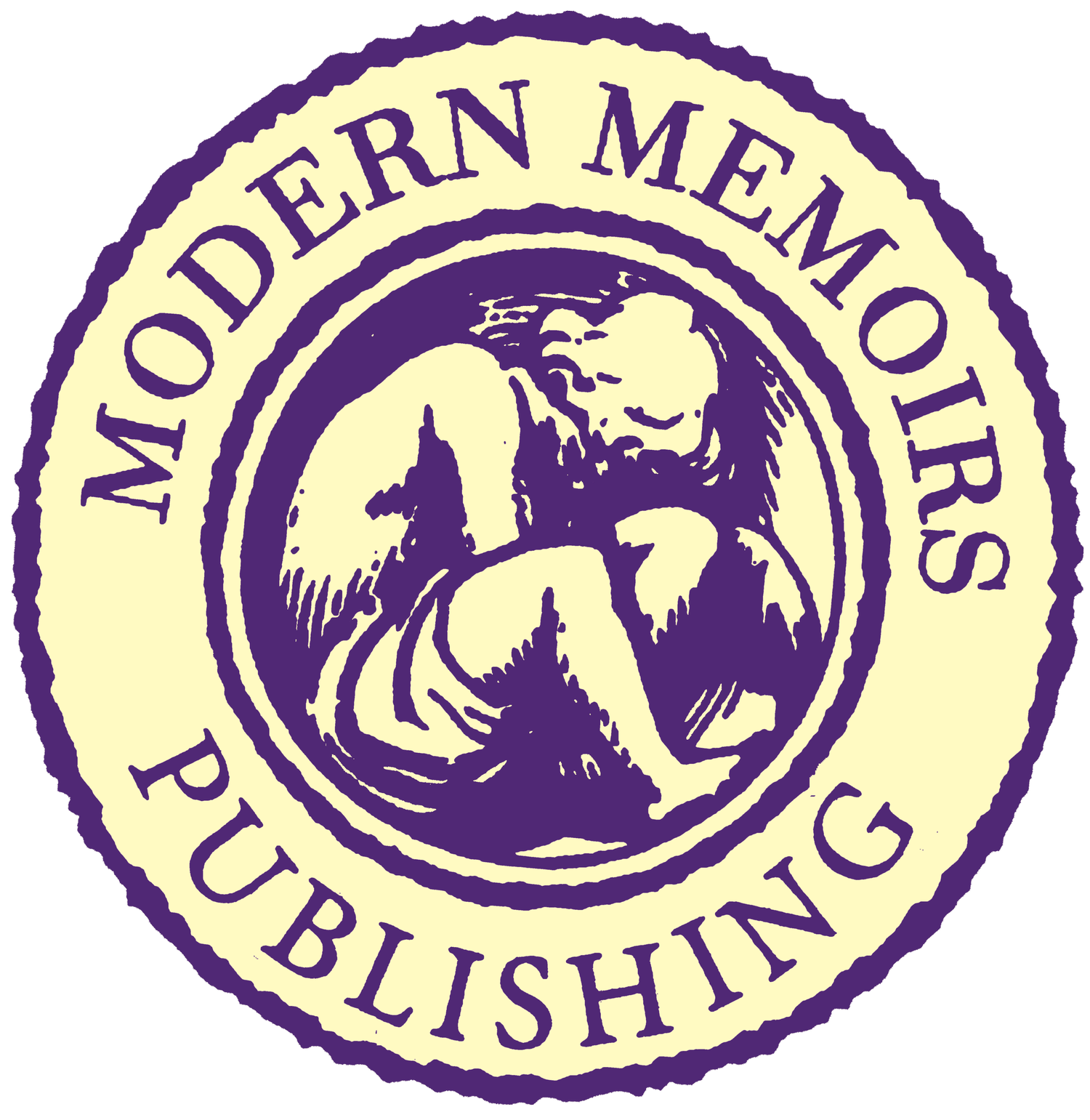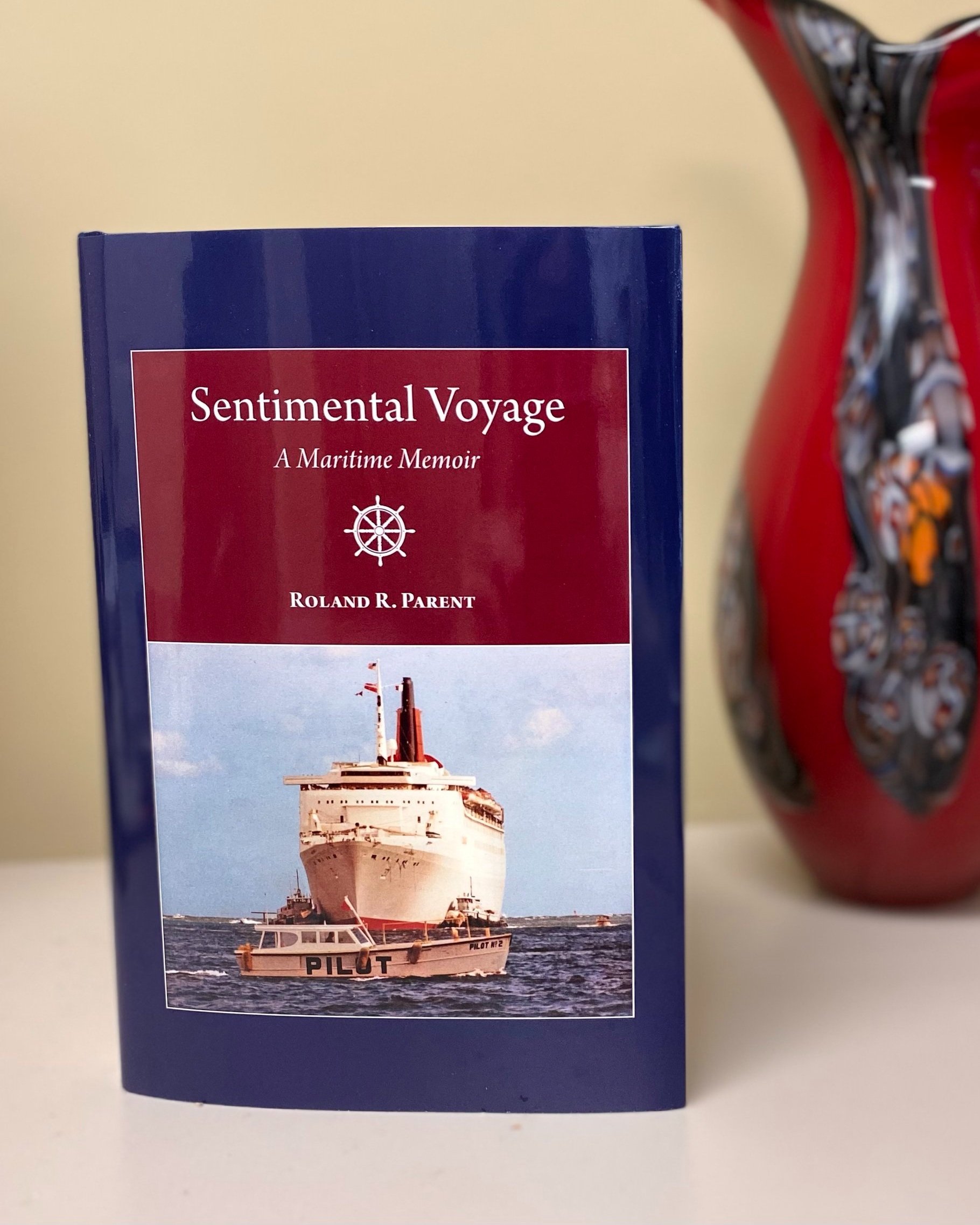Roland Parent published his book entitled Sentimental Voyage: A Maritime Memoir with Modern Memoirs in 2021. This Assisted Memoir took about one year and five months from the day he first contacted us to the day books arrived on his doorstep. We asked Parent to reflect on what the publication process was like for him, and what it’s meant to share his book with others.
1. What was your main goal in undertaking this project?
Roland Parent: My main goal was to let my readers know what their grandfather (and great-grandfather) did that he enjoyed so much. I love to read, fiction and non-fiction equally. Furthermore, because of my lifelong love for the culture of the sea, I especially like reading memoirs of former master mariners and others equally passionate about that subject. Since my life’s experience is so much different than anyone else in my family tree, and since no others in the family have written their life stories, I decided I could do that. What better way to let future generations know what going to sea and ship handling were really like in the 20th century, when there is a distinct chance that those professions may be replaced with automation in the future.
2. In the introduction to your book, you wrote, “This is not a sea story, nor a logbook, history book or autobiography, but rather a personal remembrance of much of what I hold dear from a life in, around and upon ships and the sea.” How did this approach help you write?
Roland Parent: Most of what I wrote was pretty much from memory. Thank God, my long-term memory is still with me, as my short-term memory at this age seems often to be in question. Among seagoing persons, past and present, telling sea stories often humorously involves hyperbole or exaggeration, whereas a logbook is a precise written record of a voyage. I view history books and autobiographies as much more highly researched than a memoir, and void of factual errors. I certainly tried to avoid errors in my writing, but expect that a few may have crept in. My research was usually regarding ship histories or other people’s lives that touched my own so to avoid any errors on those subjects.
“What better way to let future generations know what going to sea and ship handling were really like in the 20th century...”
3. Your career included experience as a ship’s officer and twenty-five years as a maritime pilot. In your book, you described striving to strike the right balance between being “too dry, long or repetitious,” and writing with affection about your profession. What helped you to accomplish this goal? How has reader feedback affirmed your efforts?
Roland Parent: My concern was to entertain and inform my readers, not to bore them with esoterica about ships and model building, and I wanted my readers to read the book to its conclusion. This was challenging because sometimes my drafts were way too long. Professional editing from Modern Memoirs provided big help in that department. Reader feedback has been extremely satisfying, but I expect some have not read the entire book yet. I find feedback often relates to certain chapters. For example, family members like “The Family Voyage,” college friends like “Cadet Days,” model collector friends like “Ship Modeling: My Art Form.” I have had no negative feedback. My hard work has been affirmed and rewarded.
4. You are an avid reader of maritime books, as well as a sea traveler, ship model builder, and collector of maritime art. How did you choose from such a rich store of information, experiences, and objects to “curate” this memoir?
Roland Parent: This was challenging because I could have written much more. Choosing favorites is difficult, but in a sense that is what I had to do. My favorite ships to pilot, favorite ship models, favorite authors and artists, and favorite historical figures (Winston Churchill and Theodore Roosevelt come to mind as I write this answer) seemed like a logical progression.
5. You said that your memoir is longer than originally intended. How did the project evolve from start to completion? Do you have any tips for other writers contemplating similar projects?
Roland Parent: The project started with inspiration from other memoirists and by writing individual essays on historical ship subjects. Insistence from one particular personal friend to “write down” many of the stories we shared with each other was a great motivation. The project evolved slowly, starting with a simple outline and ideas for chapter headings. There was much downtime with three chapters remaining unwritten until the beginning of the pandemic in March 2020. With extra time on my hands, I had what I needed to go to work and complete the book. Some of my favorite tasks on the whole project were creating chapter titles and selecting the quotations under each chapter heading. I also tried to pay special attention to the first and last sentences of each chapter, with a fair amount of success I believe. The book’s title was in my mind for years prior to writing. I also thought briefly about including a maritime glossary and index but decided not to due to the extra length. I wanted a professional looking book with proper hardcover binding and a nice dust jacket. I owe much gratitude to Modern Memoirs for the editing process and the lovely, finished product that far exceeded my expectations.


